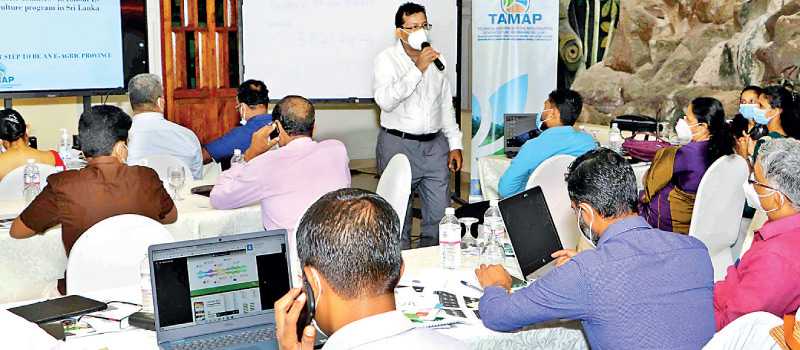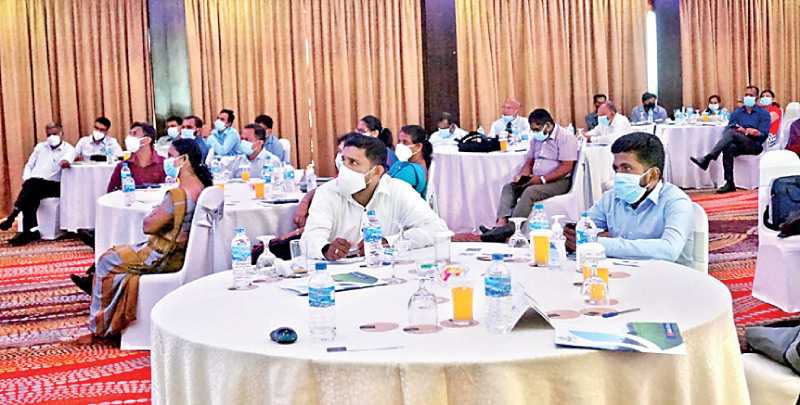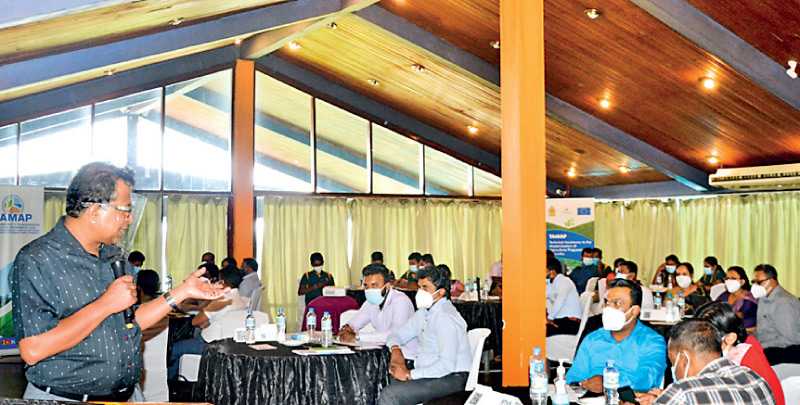Saturday Feb 21, 2026
Saturday Feb 21, 2026
Monday, 29 March 2021 00:25 - - {{hitsCtrl.values.hits}}

Master Trainers workshop in Matara
Digital technologies can relieve disruption caused by the COVID-19 crisis in food supply chains and can, in particular, improve the lives of small farmers and agricultural workers. By providing an access to agricultural information in real time, farmers can take more informed decisions on their production and logistics. That is why, the EU-funded ‘Technical Assistance to the Modernisation of Agriculture Program’ (TAMAP) in Sri Lanka targets e-agriculture as one of its key initiatives.
The TAMAP project, whose overall mandate is to support the creation of an enabling environment for sustainable and efficient agricultural production, launched a provincial training cycle for government officers in the agricultural field to raise awareness about digital agricultural applications. The goal is to create a better understanding about the value of such tools and promote usage of digital solutions at local level.
The first workshop of the ‘e-Agriculture Training Program’ took place in Matara in December 2020, conducted by TAMAP’s e-Agriculture expert, Bandula Nissanka. More workshops will be rolled out across the country in the coming months.
“The objective of these workshops is to train a group of ‘master trainers’ who can educate their colleagues in creating awareness, appreciation, and wider usage of e-agriculture applications,” said TAMAP Project Manager Bart Provoost at the first training. “We are seeking to create a pool of public officials who are able to promote the use of these applications among their colleagues, and through them, among farmers and other stakeholders in the value chain.”
“Currently, there are over 5,000 officers in the field doing extension work for various government agencies,” said Nissanka. “We have selected an initial group of individuals from these government organisations who will serve as ‘Master Trainers’. These officers are the key learners from each agency, who in turn are expected to train their fellow colleagues initially, and district-based smallholders subsequently.”
Local methods and tools were discussed during the workshop, such as the Ministry of Agriculture’s National Agriculture Database. International practices and experience from India were also shared. The workshop included group work and interactive sessions on assessing the demand for and use of e-agriculture services. A highlight of the workshop was an exercise on the development of a ‘Strategy and Action Plan’ to implement the e-agriculture program in the various provinces, involving all stakeholders.
In total, nine e-Agriculture trainings will be conducted across the country for approximately 400 agriculture public officers and 100 major agricultural buyers on improved usage of digital technologies at farm level.
This initiative seeks to generate awareness and promote the use of e-agriculture services that connect markets and provide consumers with better prices and higher quality produce. It is part of TAMAP’s mission to support innovative solutions towards the modernisation of Sri Lanka’s agricultural sector.

e-Agriculture Training Program in Kandy

e-Agriculture Training Program in Polonnaruwa